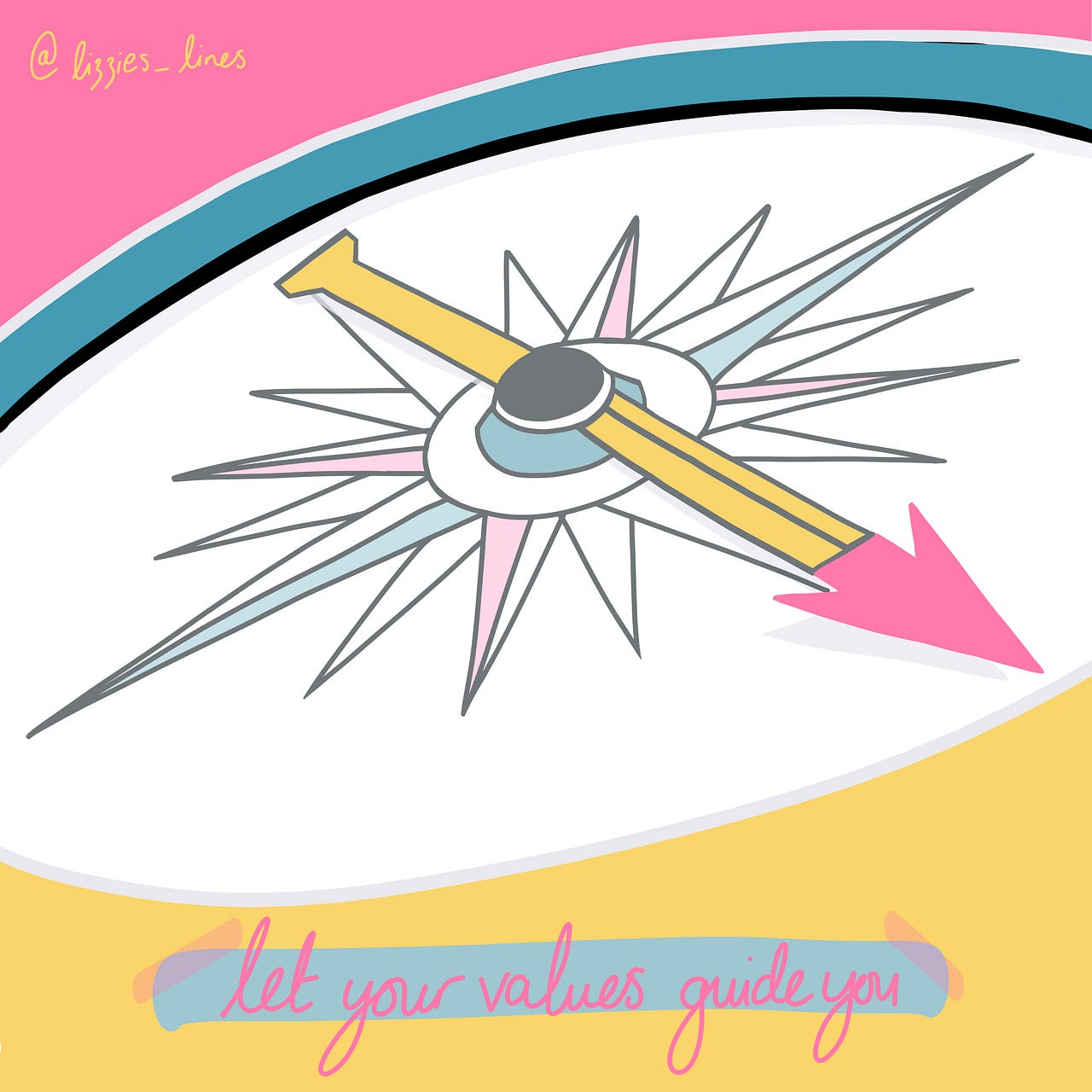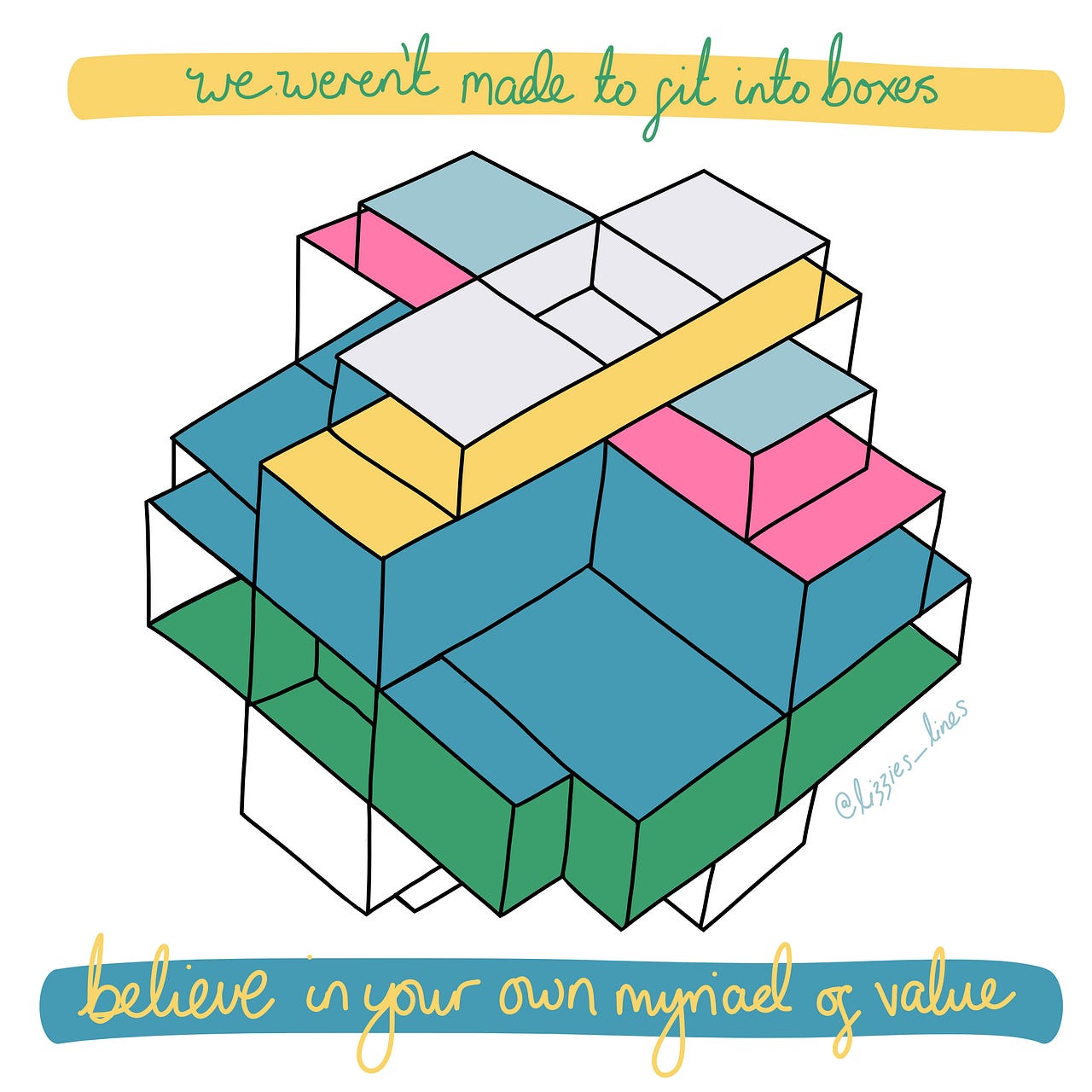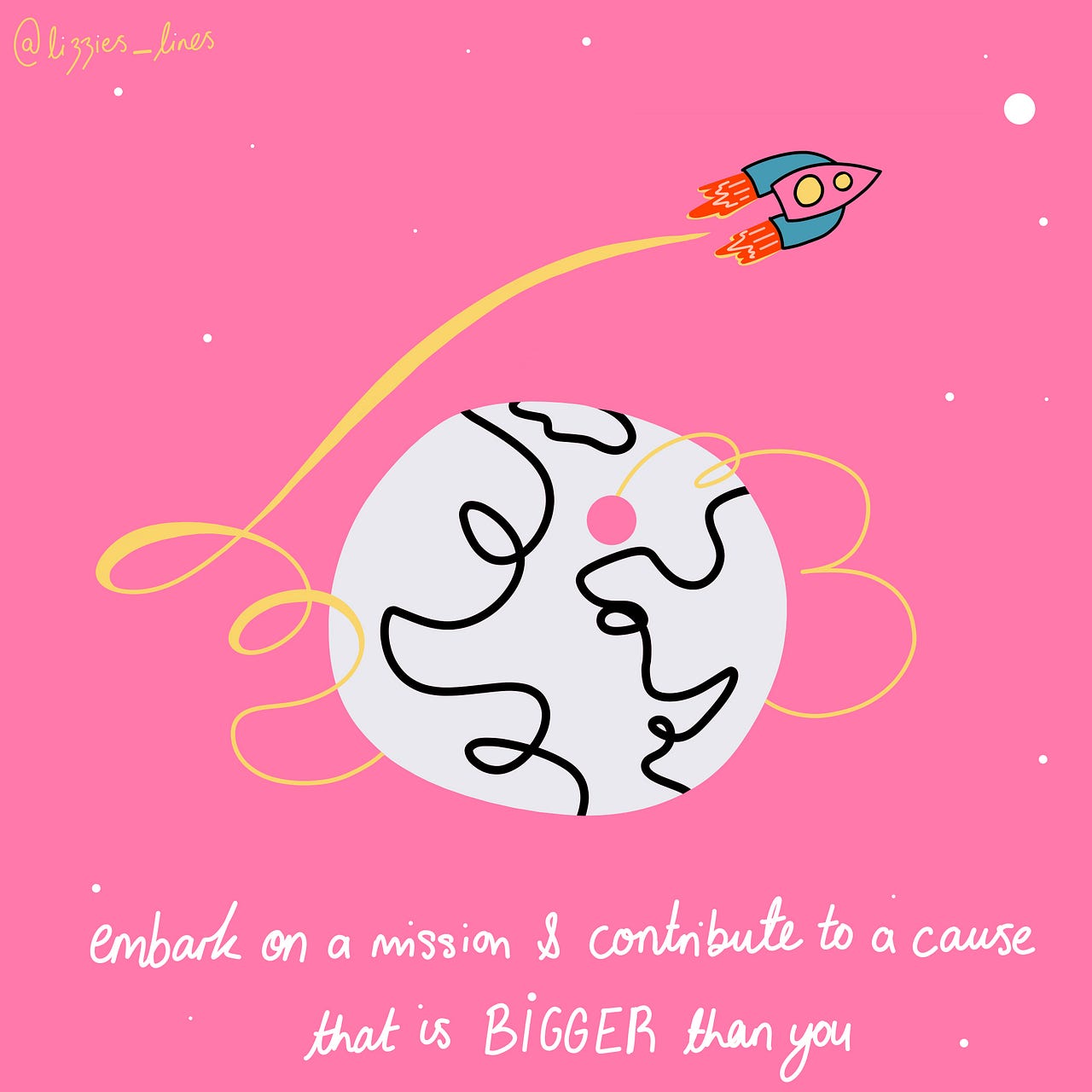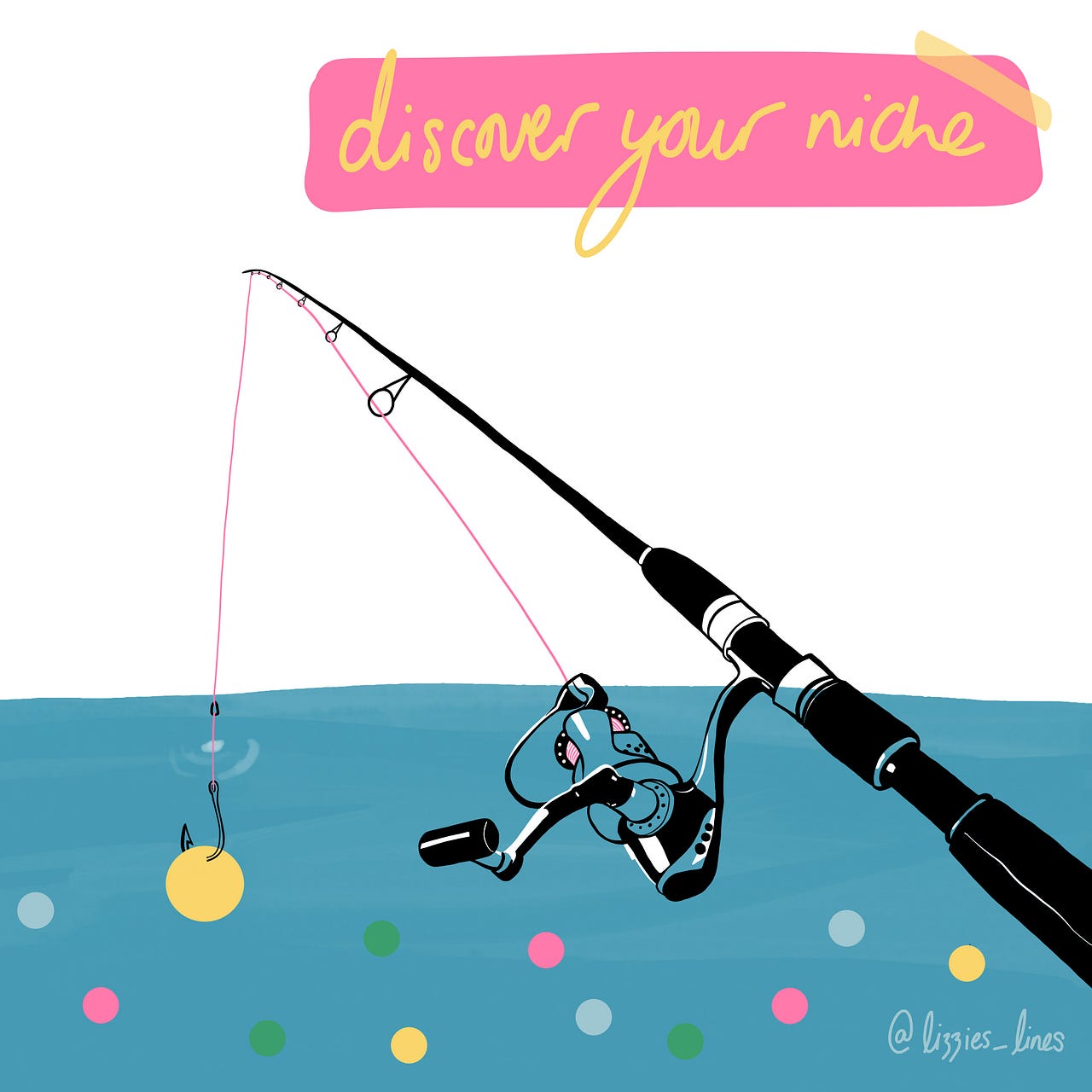Steps that multi-hyphenates and entrepreneurial people should take on their search for career fulfillment and defining a career on their own terms.
On seeking fulfillment
‘Career fulfillment’ and ‘finding your passion’ are nebulous and somewhat intangible goals — yet we continue to reach for them. And for good reason. With work taking up nearly 80% of our waking hours, why aim for anything less?
My unique career path is built on helping others find fulfillment in their work. From years spent in thousands of conversations as both a headhunter and coach, I have refined a set of six steps designed to place you firmly onto the right path in determining a career path that works for you.
But be warned: whilst these steps provide guidelines, there is no one blueprint for success or cheat sheet to follow. Don’t believe anyone who tells you otherwise.
We get told that there is a wealth of untapped opportunity within our reach — but we also live in a VUCA world — a fact never more apparent than in the current climate.
The sheer volume of unknowns and options available has made it so hard to define the right career, and the more options we have, the less likely we are to be happy.
From having a side gig; monetising your passion; going freelance, adding more strings to your bow as a multi-hyphenate; building a company to contributing to the gig economy. These non-traditional career options have many benefits, but they leave us wanting in so-far-as concrete answers.
In entrepreneurial environments, the road to career fulfillment is as winding as it is long. Trial and error is par for the course. If there were a tried and tested blueprint to follow, we would all be skipping around in fulfillment nirvana already, our every passion providing a healthy stream of diversified income.
So with that in mind, applying these steps helps get us closer to the career nirvana we all aim for. I’ve applied them to my own career, as Founder of The Ask, helping multi-hyphenate, entrepreneurial people define career paths on their own terms.
If you’re still identifying your path then you are in the right place.
Step 1: Know what makes you, you.
An essential ingredient to career success is rigorous self-knowledge and self-assessment.
To state the obvious, we are all different. What works for someone else’s career won’t necessarily work for you.
Do you know how you are wired?
Rather than skills or qualifications, this is about the unique traits and qualities you inherently possess likely since you were a child. Your unique ways of thinking and behaving.
Think of this as a ‘type’ of person. Here are some types you might recognise:
A deep thinker, able to see patterns that others can’t.
Energetic, easily brings groups of people together.
Compassionate and intuitive towards others’ emotions and needs.
A useful tool in self-examination is personality assessments. They are not the full picture and have varying levels of accuracy but can help build up a more nuanced vocabulary of ‘you’.

Some popular online tools to start you off with:
Personality isn’t everything and it isn’t even permanent as Benjamin P Hardy explains, but some paths simply are far better suited to us than others.
Rather than select a path based on the perceived appeal or prestige it may hold during a dinner party conversation, choose one that has day-to-day responsibilities that suit your personality and in which you can often find yourself effortless states of flow.
What would your truest self enjoy doing each day?
Step 2: Know what a detective would say about your life
If a detective came to your house to look through your things, what would they learn about you?
Notice how the decisions you make regarding your spare time and money indicate clearly what you care about.
If you don’t have a lot of choice in how you spend your time or money, look at your thoughts. What are you thinking, dreaming, journaling about? What themes crop up in your search history, in conversations with friends?
Whatever the topic, if it’s one you are curious about or interested in, it can provide a solid ground from which to build a career you will love.

On my part, if you looked through my bookshelf, phone notes, and recent purchases, you’ll see I’m fascinated by people.
“People” isn’t a job.
But I’ve followed my curiosities to design a career for myself that deepens my understanding of people.
This could take many different forms; I could be interested in people in high-stress situations, their consumption habits, or romantic relationships. As it turns out, I’m interested in why people do the work that they do.
The combination of my interests:
people + work = career coaching
This combination could have (and has) led to other career paths, including recruitment. Yet I’ve continually zoomed in on my interests to get to where I am now.
Do the same analysis on your own life.
If you know what you’re interested in when no one is paying you to be, you can apply this knowledge to carve a career out of your interests and get paid for the privilege.
What themes are coming up in your life receipts? Take note. These are your clues.
Step 3: Know your personal values
Values act like an internal compass to guide our decisions. They trigger our intuition to grab our attention. When are values are not being met, something feels ‘off’ about a situation.
If you can identify your values and live in alignment with them, your decision-making capabilities will improve. Here’s a guide you can use to identify yours.
My values are Contribution, Connection, Authenticity, Faith, Improvement. I have changed careers if and when one or all of the following has applied (albeit in my earlier career it wasn’t a fully conscious process):
I don’t feel I am making a meaningful contribution (Contribution value).
I’m not connecting with colleagues/customers (Connection value).
I can’t be my authentic self (Authenticity value).
I can’t bring my faith to work or have no faith in the work (Faith value).
I feel I’m not improving (Improvement value).

I’ve allowed my intuition to guide me like an internal GPS at times going against logic, including quitting a job without a safety net because it jarred so much with my values. That decision has got me closer to where I want to be, faster than playing it safe would have done.
What 3–6 core values will guide your career decisions?
Step 4: Don’t try and fit into a neat box
We are complex creatures, we weren’t designed to fit into a box. Yet when we describe what we do for a living we often feel the need to provide a simplified answer.
Position your unique combination of skills and experiences to honor every part of your professional narrative. Do it in a way that joins the dots and aligns with the mission you want to solve.
It’s ok to be different.

Multi-hyphenate careers (where we do more than one thing, as signified hyphenating your roles) are becoming the norm as popularised by Emma Gannon.
Actor — Director was an early iteration of the multi-hyphenate in the entertainment world. We now see it with many creative, non-traditional, and entrepreneurial careers.
You can include as many hyphens as you please, just be sure you actually want to include them in your future.
It may help to think of having a professional centerpiece hyphenated by other complementary aspects. Allow a unique combination of expertise you have in one domain to fuel your excellence in another.
All business owners wear many hats. Freelancers might find work in one sphere dry up whilst others are plentiful, only to find the opposite to be true the following month. Being flexible is a part of the process.
I always struggled with owning the identity of being a recruiter. Not just because of the bad rep they often get but because I knew I had more to offer — skills I was using outside work like blogging and coaching friends on their careers. Now as a qualified coach, I can hyphenate ‘coach’ with confidence.
What are your hyphens?
Step 5: Identify a mission
Direct yourself and your unique qualities towards something bigger than yourself by defining a meaningful career mission.
Many missions are meaningful and some may appear more meaningful than others. But in order for it to be your unique career path, you must choose one that is meaningful to you.
Rather than your interests (as defined earlier) a mission is an unsolved problem. It may be partly solved, but only for some groups of people, or an inefficient way, in which case it could be your mission to fully solve it.
Missions are so big, and may never be entirely ‘solved’. But this is a good thing — our careers are long and should sustain our interest.

Perhaps someone close to you died from breast cancer due to their local healthcare system’s inefficiencies. Your mission might, therefore, be in disease prevention or could lie in process improvements.
Most companies have their own mission statements. If you’re joining as an employee ensure it is one you can get behind or attach significance to based on what you really care about
Choose a mission that energises you and you’ll be able to tap into fulfilment that lasts a lifetime.
I care about people finding work that is meaningful. This mission is one I feel called to solve and can do so across all of my coach — recruiter — writer activities.
What’s your mission?
Step 6: Be irreplaceable
Get specific about who you are and what you want and you become irreplaceable.
You have to focus.
This isn’t the same as picking one box to fit yourself into, but about creating a unique combination of your multi-hyphens.
It’s so rare that people can truly articulate their uniqueness and purpose that those that do can charge over the odds for their services.
For example, a marketeer with a niche that covers both copywriting and brand positioning for SaaS companies can seek work that requires their expertise specifically, and charge more, than a marketeer with generalist knowledge could hope to.

So choose a niche — and then commit to being the best at it.
My coaching clients often fear that focusing too much can close off prospective opportunities. But as we’ve seen, there are so many potential career paths we could choose from, most of which are wrong for us.
Getting specific serves two purposes.
Firstly it minimises your career risk. World-leading investors tout the importance of investment strategies focused on risk-aversion. You can’t reliably predict a win but you can protect the downside to minimise your losses. In the same way with your career, saying no to opportunities that do not meet your uniqueness reduces the risk of it being wrong for you.
Secondly, it means more exposure.
In a world of experts where knowledge gets monetised, depth is preferable to breadth. By niching, the value of your knowledge increases as you can dominate that subject matter faster.
We are often told through our early career to keep our options open (e.g. becoming management consultant) but here’s why optionality can actually do more harm than good in the long run.
I could be a career coach for anyone, in theory, much of my knowledge is universal. But to get known and truly add value to my clients it serves both them and myself to focus on non-traditional careers. I landed on this niche based on my own experiences of not fitting into a box, working with entrepreneurs through start-up accelerators, and my own experience of going freelance. This is my tribe.
What makes you irreplaceable?
Honing in on career fulfillment
Well done if you got this far. A lot of this requires doing inner work and making difficult trade-offs; it isn’t a walk in the park.
These steps are the bedrock of true self-awareness and powerful decision making — your secret weapons in times of uncertainty. I’ve ignored them at times to my peril but when I later course-corrected felt more aligned, authentic, and fulfilled in my career choices.
I know that if you apply what you’ve learned here, you can’t go too wrong. I can’t wait to hear how you get on.
Psst. The Ask provides coaching for multi-hyphenate, entrepreneurial people to help them define fulfilling career paths on their own terms and become irreplaceable.
Book your free discovery call today.
Commissioned illustrations by Lizzie Reid (@lizzies_lines)


